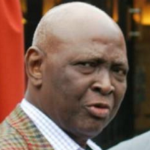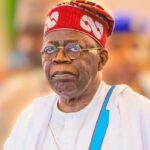
CONTROVERSY over the recent nomination of allegedly partisan individuals as Resident Electoral Commissioners by President Bola Tinubu revived the debate over the independence of the electoral umpire and raised suspicions anew about the elite’s unending attempts to capture it. While standard global democratic practice is to establish and entrench non-partisanship, Nigeria’s leaders are often keen to influence the Independent National Electoral Commission by appointing political allies to its top offices. Tinubu should withdraw any nominee linked to any political association.
There are allegations that some of the 10 RECs Tinubu recently nominated belong to the ruling All Progressives Congress. These allegations should be investigated as they raise the spectre of political interference with the electoral agency, which could have significant implications for the integrity and fairness of the electoral process and the future of democracy.
With the integrity of Nigeria’s elections and of INEC at a very low ebb nationally and globally, there should no whiff of partisanship in the agency.
To ensure its neutrality, the 1999 Constitution prohibits the appointment of members of political parties as RECs – officials who coordinate INEC activities in states. But at least, two of the RECs nominated by the President are accused of being card-carrying members of the ruling party, while two others are said to be long-term allies of prominent politicians in Tinubu’s corner.
The President had announced the nomination of 10 RECs each to serve a five-year term. As usual, the Senate approved within 24 hours without subjecting the list to any thorough check.
However, reports indicate that one is a member of the APC and a long-time ally of the Senate President, Godswill Akpabio, whom he served as the Chief of Staff when the latter was governor of Akwa Ibom State 2007 to 2015. In August 2018, during a welcome rally for Akpabio in Uyo, the nominee and others publicly embraced the APC.
Shockingly, three other nominees have equally been alleged to be APC supporters, either exposed by their social media footprints as party supporters, or had variously held appointments under Tinubu’s governorship in Lagos 1999-2007 or under other APC governments.
The President should withdraw these nominations and seek Nigerians who have no political affiliations.
A former INEC chairman, Attahiru Jega, recently criticised the existing laws that empower politicians to appoint senior officials of the commission. Jega lamented that such nominees were usually not thoroughly screened, causing a ‘damaging effect’ on the integrity of elections.
Tinubu is toeing the path of his predecessor, Muhammadu Buhari, who repeatedly nominated partisan individuals and persons with integrity issues as RECs, thereby drawing widespread criticism.
In 2017, Buhari nominated Olalekan Raheem, a member of the APC as REC from Osun State. In 2021, he similarly nominated Lauretta Onochie, a known party operative. Both were rejected by the Senate.
These moves have negative implications for the electoral process and democracy. Invariably, it leads to political interference and compromises the independence of electoral agencies. Free and fair elections are fundamental to a democratic system, and interference undermines their credibility, and weakens democratic institutions.
Interference distorts the electoral playing field, giving certain parties or candidates unfair advantage. This can lead to outcomes that do not accurately reflect the will of the people, potentially resulting in governments that lack legitimacy to govern effectively. Legal challenges also arise. Some 1,209 petitions arose from the 2023 elections, representing 94.45 per cent of the positions contested.
To safeguard democracy therefore, it is crucial to establish and maintain strong, independent electoral institutions. Tinubu should replace the controversial nominees.





